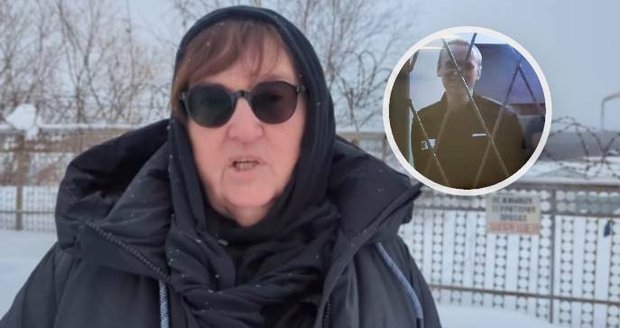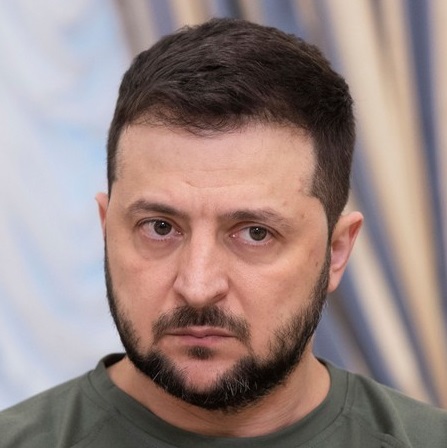Alexei Navalny spent most of his time alone in cold concrete cells. His only company was his books. He found solace in writing letters. He wrote to an acquaintance in July that no one would understand a Russian prison except those who were in it. And he added with his usual humor, “Not that anyone needs to be here.”
“If you tell them to feed you caviar tomorrow, they will feed you caviar,” the Russian opposition leader wrote to the same acquaintance Ilya Krasilshchik in August. “If they’re told to strangle you in your cell, they will.”
Several friends and acquaintances provided The New York Times with letters written by Navalny in prison. These show the deep ambition, determination and curiosity of a man who has stirred up opposition to Russian President Vladimir Putin. As his supporters hope, his legacy will become a symbol of their resilience. The letters also show how Navalny, who had a healthy ego and confidence in the rightness of his actions, struggled to stay connected to the outside world.
Although the brutal prison conditions took a toll on the leader’s health, as he was often denied treatment, he maintained a clear mind. In a year, he read 44 books in English and methodically prepared for the future: refining his agenda, studying political memoirs, arguing with journalists, giving career advice to his friends, and sharing his thoughts on viral social media videos sent to him by his team.
In his public messages, Navalny called his imprisonment a “space trip”. Last fall he was very lonely, he was forced to spend most of his time in solitary confinement. His three lawyers were jailed for being part of an “extremist group”.
However, he still kept an overview of current events. To my friend, the Russian photographer Yevgeniy Feldman wrote that the election program of the former president Donald Trump looks “really scary”. He further wrote that if the president has Joe Biden health problems, Trump becomes president. “Doesn’t that worry the Democrats?” he wondered.
Hundreds of letters
Navalny was able to send hundreds of handwritten letters thanks to the digitization of Russia’s prison system. Through the website, people could write one page to him for 40 cents (approximately 9 CZK, editor’s note) and receive a scan of his reply, usually a week or two later. The letter had to be checked by a censor.
The opposition leader was also distracted by court hearings to deal with complaints about his treatment or other criminal cases attributed to him. Navalny told Krasilshchik that he enjoyed the hearings despite the indifference of the Russian justice system. “They’ll distract you and make the time go by faster,” the opposition leader wrote to him at the time.
The court hearings also gave him an opportunity to show his disdain for the system. In July, as a result of the sentence, which read that he was sentenced to another 19 years in prison, Navalny asked the judge and officers in the courtroom if they were “crazy.” “You have one life from God and this is how you choose to spend it?” he said, according to a text published by his team.
In one of his last hearings, he asked for longer meal breaks so he could consume “two cups of boiling water and two pieces of disgusting bread”. to which he was entitled. However, his appeal was rejected, but he tasted food vicariously through others throughout his imprisonment. He wrote to Krasilščić, who lives in exile in Berlin, that in his new place of residence he prefers kebabs to falafel and was interested in the Indian food that Krasilščik tasted in New York.
“You Begin to Realize the Horror”
Navalny’s other complaint was about books. He wished he had more than one in his cell, which was the number allowed. And it was books that became the center of his life during the time he was imprisoned until his death.
In another letter to Krasilščik, he explained that he likes to read 10 books at the same time and jump between them. He confided to him that he liked memoirs: “For some reason I always despised them. But they’re actually amazing.”
He also often talked about book recommendations, and even gave out recommendations. While describing prison life in one letter, he recommended nine books on the subject to his friend. One of them was the book One Day of Ivan Denisovich, written by Alexander Solzhenitsyn, who also went through the Russian gulag, back then under Stalin’s rule. Navalny read it a second time and wrote that only now did he understand it – after surviving the hunger strike and experiencing the depravity of the labor camps. “You begin to realize the horror,” he wrote

At that time, Navalny also read books about modern Russia. One of them was a book by Mikhail Fishman, a liberal Russian journalist currently working in exile in Amsterdam. The latter heard from Navalny’s adviser that the opposition leader had read his new book about the murdered opposition politician Boris Němec, who criticized Vladimir Putin’s administration. Fishman said he was told Navalny liked the book but found it too sympathetic to former Russian President Boris Yeltsin. The journalist then wrote to Navalny and tried to convince him about his book, for example arguing that Yeltsin hated the KGB. Navalny wrote back that he was “particularly outraged” by the statement about the secret police. He insisted that Putin’s predecessor had failed to change the Soviet system. “This is what I cannot forgive Yeltsin for,” he wrote to Fishman.
However, he thanked Fishman for providing some details about his life in Amsterdam. “Everybody usually thinks I need pathetic and heartbreaking words,” he wrote in an excerpt Fishman shared with The New York Times. “But I really miss the daily routine – news about life, food, gossip.”
Kerry Kennedy, a human rights activist and daughter of Democratic politician Robert F. Kennedy, who was assassinated in 1968, also exchanged letters with Navalny. He told her he cried “two or three times” while reading a book about her father that a friend had recommended. His transcribed letter was shared by Kennedy on Instagram.
Navalny thanked her for sending him a poster with a quote from her father’s speech about how “a wave of hope,” multiplied a million times, “can tear down the mightiest walls of oppression and resistance.” “I hope to be able to hang it on my office wall one day,” Navalny wrote to her.
Perry was also mentioned
The friend who recommended Navalny’s book about President Kennedy was Feldman, a Russian photographer who documented Navalny’s attempt to run for the presidency in 2018. Feldman, who is now in exile in Latvia, said he has sent at least 37 letters to Navalny since his imprisonment in 2021 and has received replies to almost all of them.
“I really like your letters,” Navalny wrote to him. “They have everything I like to talk about: food, politics, elections, scandalous things and ethnic issues.”
Feldman said they also wrote about anti-Semitism and the situation in Gaza or the actor Matthew Perrymwho died last October. Although Navalny had never seen the series Friends, he was moved by the obituary he read in the American weekly The Economist.
He was then transferred to a harsher “special regime” facility. It was the Polar Wolf Prison. But he didn’t stop reading there either. He read everything he could. However, he had to choose from the classics, so he read Dostoyevsky, Tolstoy or Chekhov. “Who could have told me that Chekhov is the most depressing Russian writer?” he wrote in a letter to journalist Sergei Parchomenk. He also shared his letter on the social network Facebook.
Not all of Navalny’s letters have yet reached their recipients. Feldman said that Navalny’s team informed him that he had responded to several other letters. “Frankly, I dread the thought of it,” Feldman confided. “If the censors let them through, I’ll be getting letters from him for months to come.”
Krasilščik said he reflects on the last letter he received in September. Navalny wrote that if South Korea and Taiwan could transition from dictatorship to democracy, perhaps Russia could too. “Hope. I have no problem with that,” wrote Navalny. “Keep drinking! AND.”
View full online










